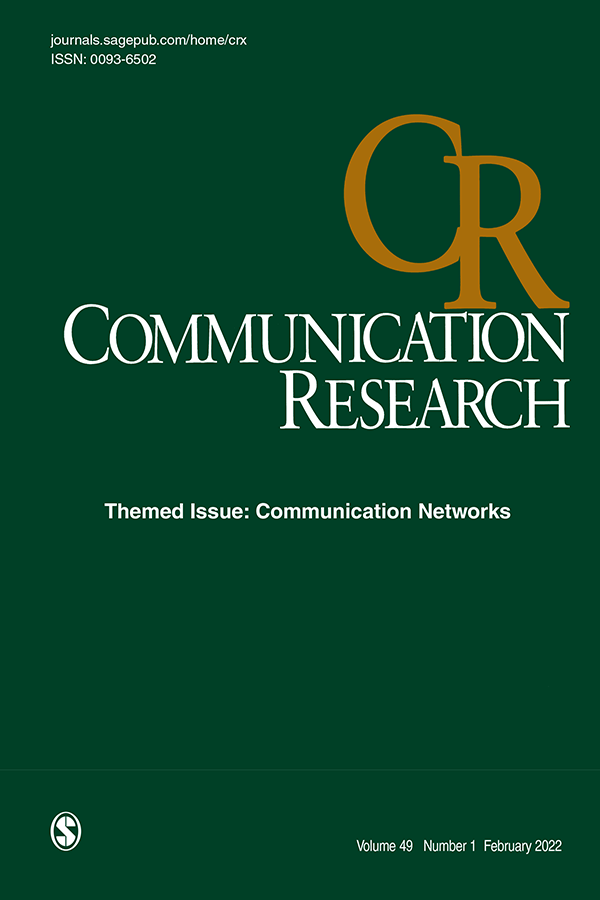Day-to-day Social Interactions Online and Offline: The Interplay Between Interaction Mode, Interaction Quality, and Momentary Well-being
IF 3.2
1区 文学
Q1 COMMUNICATION
引用次数: 0
Abstract
Digital social interactions differ in many ways from face-to-face interactions. This study examines four preregistered hypotheses on the within-person interplay between interaction mode (i.e., digital vs. face-to-face interactions), interaction quality, and momentary well-being. Young adults from Spain (日常社会互动线上和线下:互动模式、互动质量和瞬间幸福感之间的相互作用
数字社交互动在很多方面不同于面对面的互动。本研究考察了互动模式(即数字与面对面互动)、互动质量和瞬间幸福感之间的四种预先登记的假设。来自西班牙(N 1 = 216)和荷兰(N 2 = 22)的年轻人分别提供了5,116和1,386份生态瞬时评估(EMA)。在西班牙的样本中,数字互动和面对面互动的互动质量没有差异,而在荷兰的样本中,数字互动的质量更高。在两个样本中,互动质量与瞬间幸福感呈正相关。面对面交流后,西班牙人的瞬时幸福感更高,而荷兰人则不然。互动质量在互动模式与幸福感之间没有中介作用;相反,它在西班牙样本中起到了缓和作用。尽管互动质量一直与短暂的幸福感有关,但它只能部分解释为什么面对面的互动不同于数字互动。
本文章由计算机程序翻译,如有差异,请以英文原文为准。
求助全文
约1分钟内获得全文
求助全文
来源期刊

Communication Research
COMMUNICATION-
CiteScore
17.10
自引率
0.00%
发文量
20
期刊介绍:
Empirical research in communication began in the 20th century, and there are more researchers pursuing answers to communication questions today than at any other time. The editorial goal of Communication Research is to offer a special opportunity for reflection and change in the new millennium. To qualify for publication, research should, first, be explicitly tied to some form of communication; second, be theoretically driven with results that inform theory; third, use the most rigorous empirical methods; and fourth, be directly linked to the most important problems and issues facing humankind. Critieria do not privilege any particular context; indeed, we believe that the key problems facing humankind occur in close relationships, groups, organiations, and cultures.
 求助内容:
求助内容: 应助结果提醒方式:
应助结果提醒方式:


